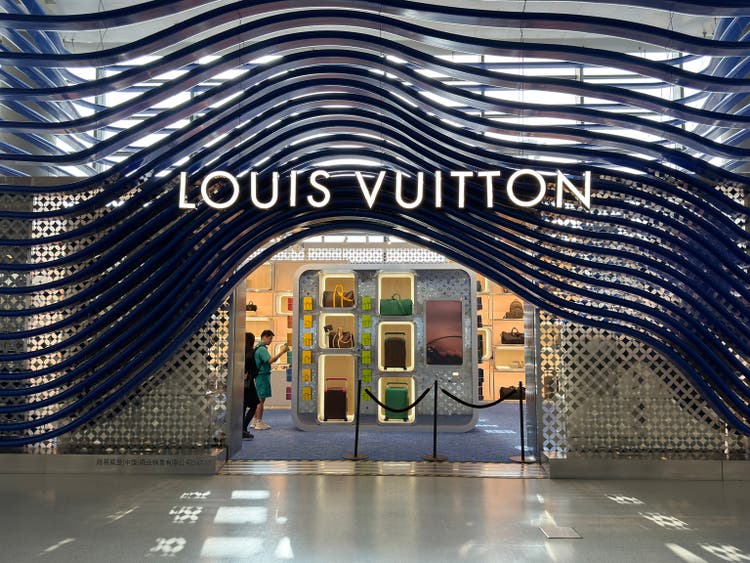- Founded by an Italian immigrant, Chef Boyardee is emblematic of the American Dream. As a teenager, Hector Boiardi left Europe to become a top chef at a luxury New York hotel before going out on his own and eventually creating a nationwide brand. Nearly a century later, the Chef Boyardee brand has gone from a $6 million sale in 1946 to a $600 million deal today, marking a 10,000% increase in value.
You might know Chef Boyardee for being a staple across U.S. grocery store shelves or for rolling to the home of a disappointed young girl in its iconic 2000s TV ad.
Even so, the American brand just made a much bigger move—thanks to its $600 million sale from Fortune 500 company Conagra Brands to Hometown Food Company, a portfolio company of Brynwood Partners, that also owns nostalgic staples like Pillsbury and Hungry Jack.
And while the 100-year-old Chef Boyardee brand may seem simple, as a collection of canned pasta products, its value has grown some 10,000% since it first exchanged hands from the family business. In that time, it’s gone on to stock the shelves of thousands of grocers and have a 500-person strong manufacturing plant in Pennsylvania.
But 110 years ago, its founder, Hector Boiardi, was just a teenage Italian immigrant chasing the American Dream.
Chef Boyardee’s founder went from the Ritz-Carlton to feeding the army during World War II
In 1915, Boiardi first made a name for himself by becoming a top chef at big-name New York City hotels like the Ritz-Carlton while just 17 years old. Less than a decade later, he moved to Cleveland, Ohio, where he opened his own restaurant, called Il Giardino d’Italia. Soon, his expansion of dine-in and carry-out operations required factory production, and the brand took off nationwide—and even thrived during the Great Depression.
During World War II, the company created field rations for the armed services, and Chef Boyardee exploded to a company with $20 million in annual revenue (over $320 million in today’s money). By 1946, Chef Boy-ar-dee (as it was named then, before pivoting to today’s style, Boyardee) Quality Foods sold to a larger food company for $6 million (about $100 million today). Boiardi remained a company consultant until 1978 and invested in other local restaurants before passing away at 87 years old in 1985. But his legacy, in his namesake brand, lives on.
“We are excited to add the iconic Chef Boyardee brand to the Hometown collection of nostalgic brands that offer a longstanding rich heritage,” wrote Henk Hartong, chairman and CEO of Brynwood Partners (the firm behind Hometown Food Company) in a press release.
And despite Chef Boyardee’s relative simplicity for its near 100-year history, focused on canned and microwaveable cups, there may be innovation in the works.
“We have grown the Hometown portfolio by nearly twofold since we formed the business and are confident that we can reinvigorate the Chef Boyardee brand and extend into new formats quickly,” Hartong added.
Fortune reached out to Conagra Brands and Hometown Food Company for further comment.
The American Dream: These simple ideas became billion-dollar household names
Chef Boyardee’s rise from a humble kitchen to supermarket staple captures the spirit of the American Dream—just like other enduring brands that have stood the test of time and grown into billion-dollar empires.
For example, Minute Maid juices started in the 1940s focused on selling frozen concentrated orange juice and began expanding to usher in the new retail beverage category. In 1960, Minute Maid Corporation was purchased by The Coca-Cola Company for a stock swap worth about $59 million (worth about $640 million today). However, estimates now put the entire value of the Minute Maid portfolio near $8 billion.
In a similar timeline, Pepperidge Farm, known for cookies and crackers including Goldfish, started as an expansion into commercial baking in the 1940s. By the early 1960s, it had grown into having $22 million revenue and was purchased by Campbell Soup Company. Four decades later, Pepperidge Farm’s revenue has grown nearly 60-fold to $1.3 billion, according to Fox News.
Today, the food and beverage industry remains one that is full of opportunity—despite the crowded grocery store shelves. Probiotic soda brand Poppi, which started as an endeavor started in founder Allison Ellsworth’s kitchen, recently sold to Pepsi for $1.95 billion.
“Over the years, I discovered people tend to make excuses or talk themselves out of trying to start a business,” Ellsworth said to Forbes in 2024.
“I believe successful entrepreneurs are willing to take the necessary risks. Some people get stuck in the ‘What if I fail?’ mindset, but I’ve always looked at it as ‘What if you tried?’ You’ll never know unless you try it.”
This story was originally featured on Fortune.com

 5 hours ago
1
5 hours ago
1














 English (US) ·
English (US) ·